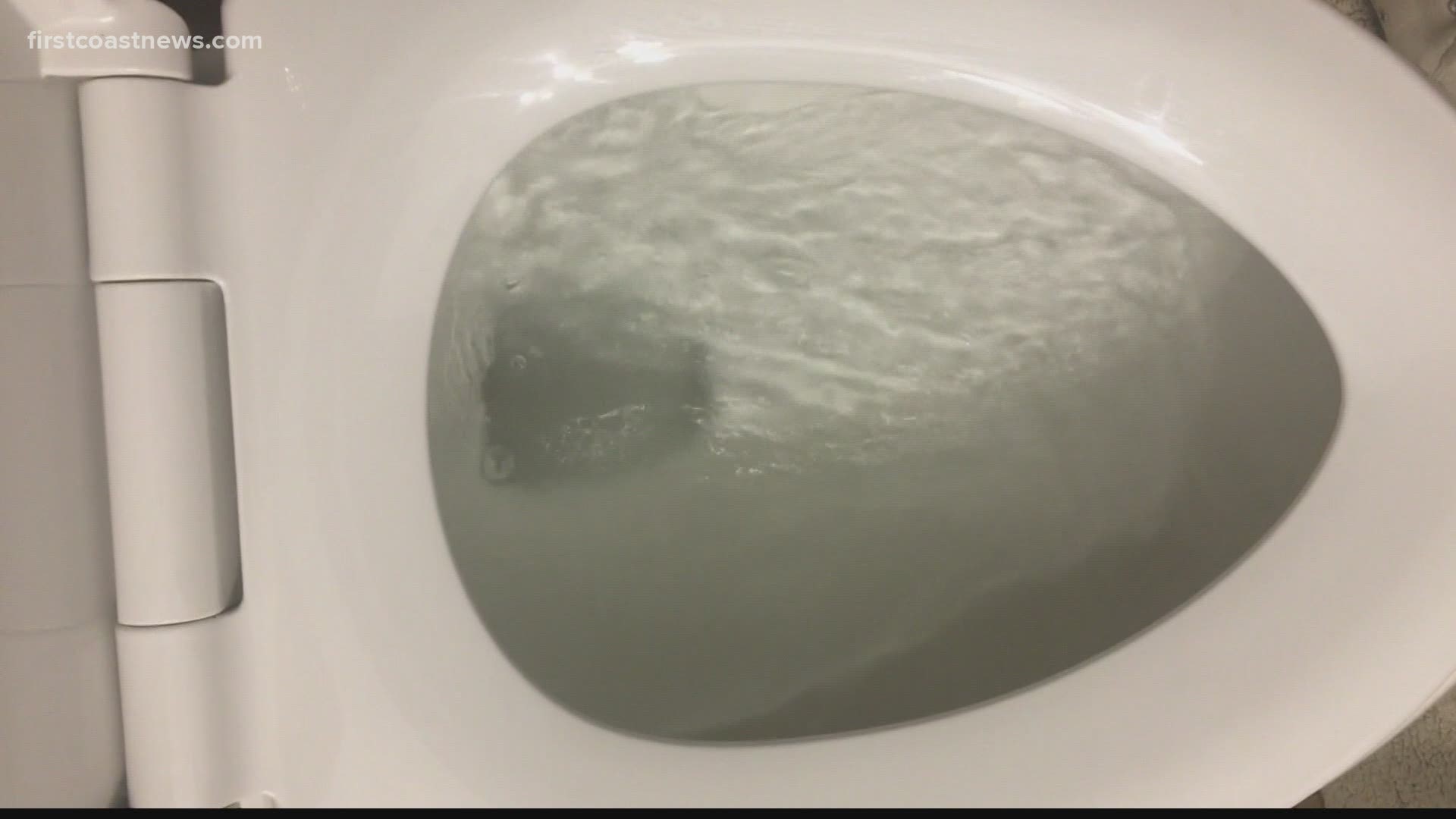JACKSONVILLE, Fla. — After five months and 36 samples, JEA says it has found almost no presence of the coronavirus in city sewage.
JEA began testing the city’s wastewater in May — one of the dozens of utilities around the country hoping to use sewage to track the progression of the virus, and even predict a spike in new cases.
The science of sewage testing isn't new, it's been used to combat and contain the poliovirus, and in recent months has shown promise in fighting COVID-19. Because people begin shedding the virus up to seven days before exhibiting symptoms, sewage can presage a spike of community contagion.
It's been used with pinpoint accuracy at the University of Arizona, where in August researchers were able to detect two asymptomatic students in a dorm, allowing college officials to isolate them and prevent further spread.
But JEA’s testing program has produced unusual results — showing almost no trace of the coronavirus.
"I think the gut check is, with the amount of cases that we've seen in our area, that we would be seeing higher detection levels," JEA Consulting Engineer Ryan Popko said. "We expect that with the amount of cases in our area, we should be seeing a detection level in our samples."
Instead, out of 36 wastewater samples, only 4 showed trace levels of the virus. "It was a little bit of a surprise to us," Popko said. "We’re wondering why that’s the case."
Initially, JEA workers theorized that the city's vast network of pumps or "lift stations" — necessitated by the region's pancake-flat topography and JEA's enormous service footprint — could diminish the presence of the virus.
But tests further "upstream" — closer to customer toilets — detected no more virus than the first samples. So this week, JEA is trying a new approach.
Rather than taking water samples, the utility is going to test solids.
"We are going to send [the lab] a sample, they'll condense the solids and test that," Popko says. "It's known that SARS-CoV-2 virus has a strong affinity for solids. So we're hoping that that might give us some insight as to why our samples are coming back below detection levels."
JEA expects to get the results of the new tests next week. First Coast News will follow up on those findings.

